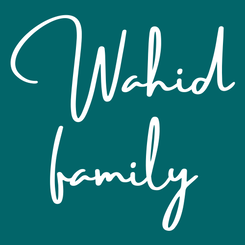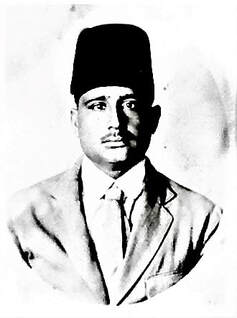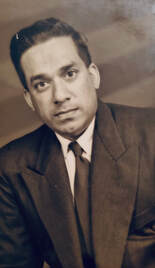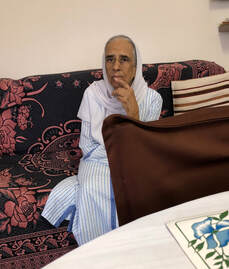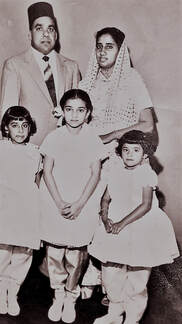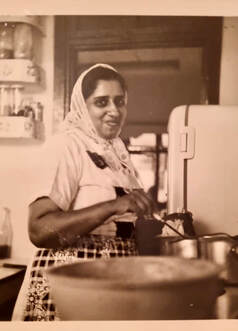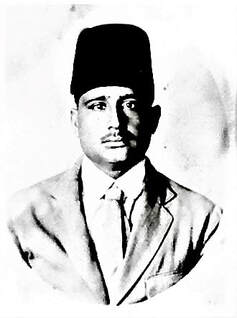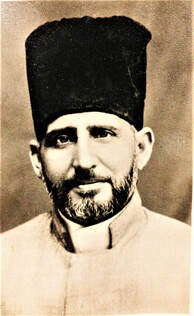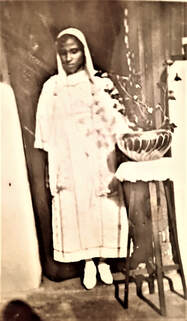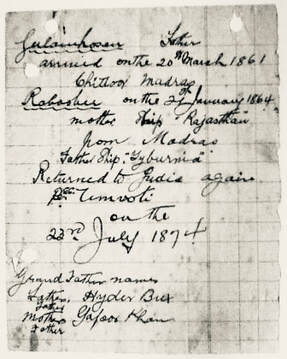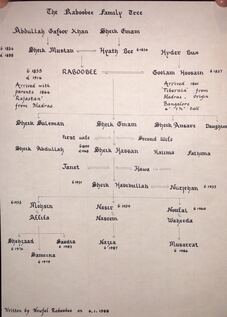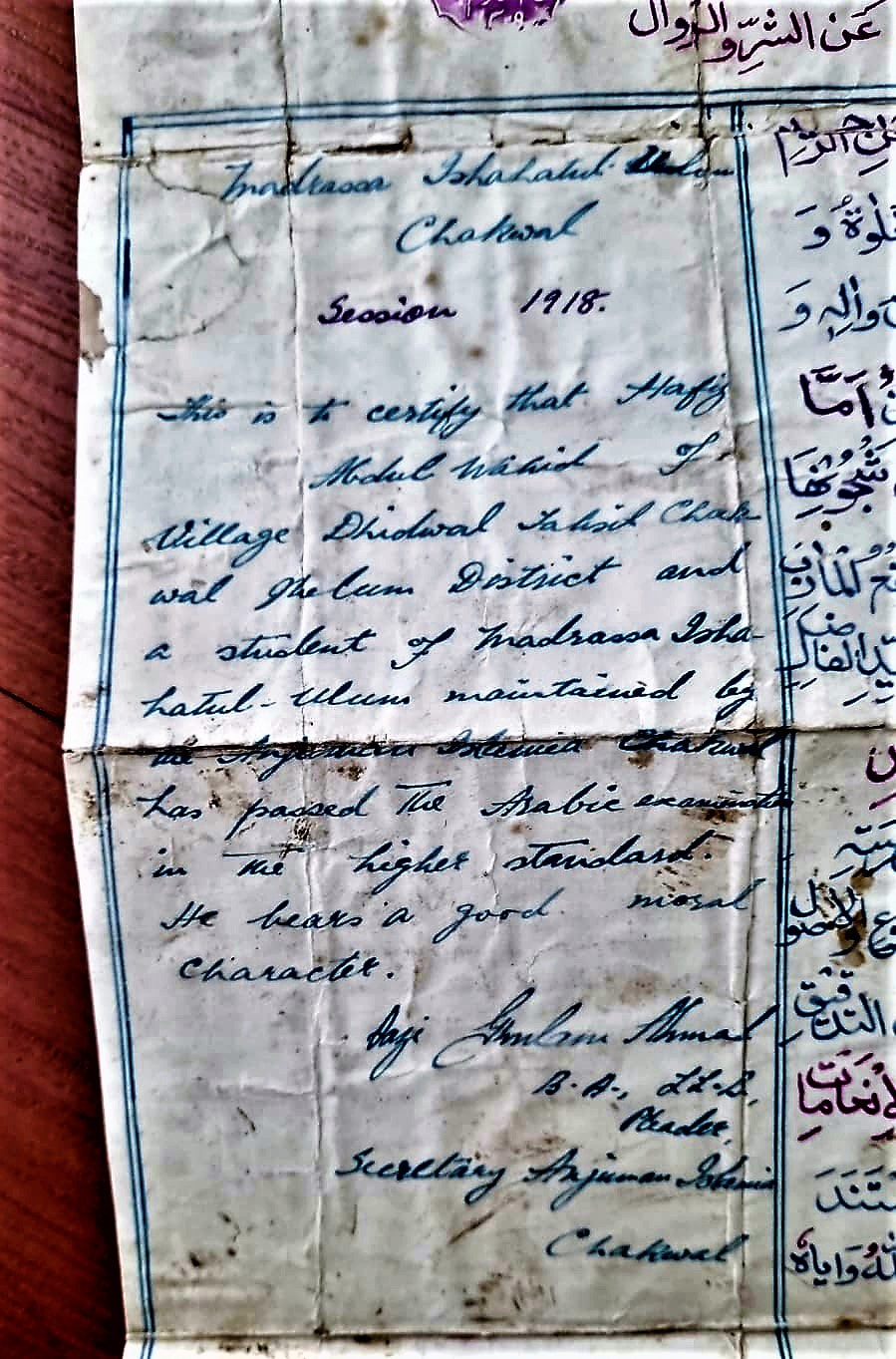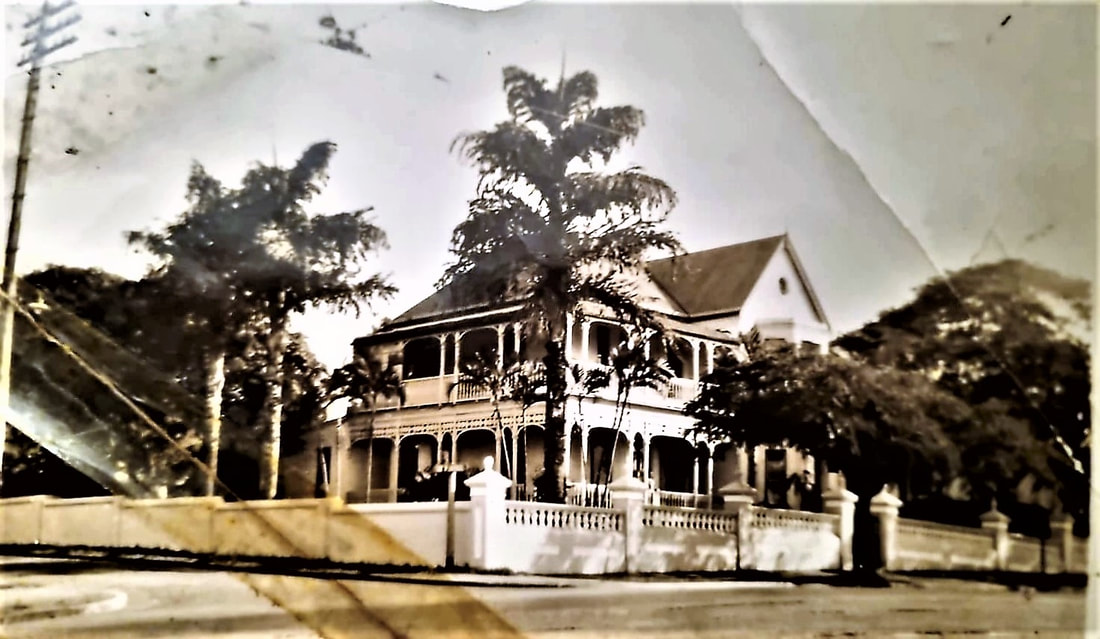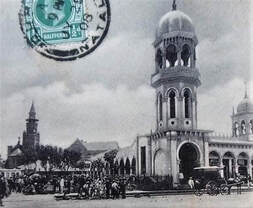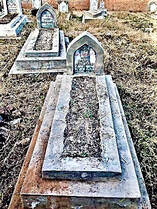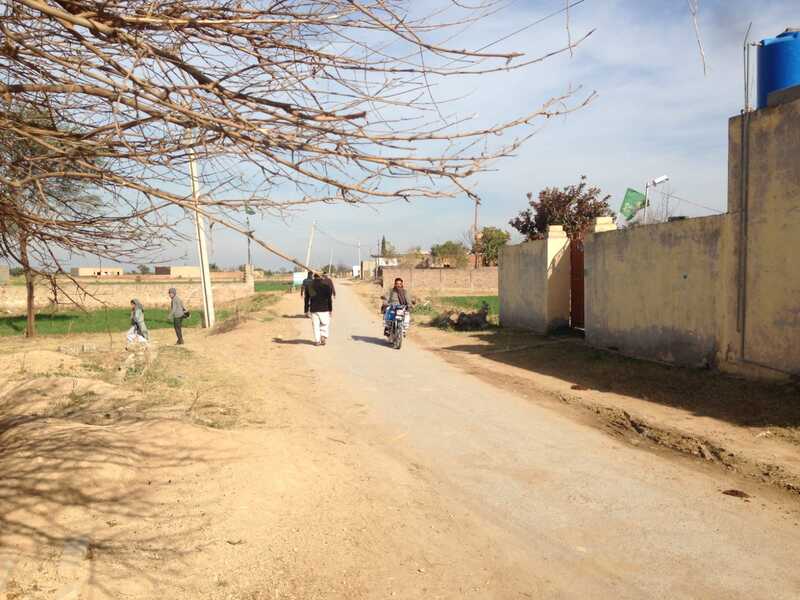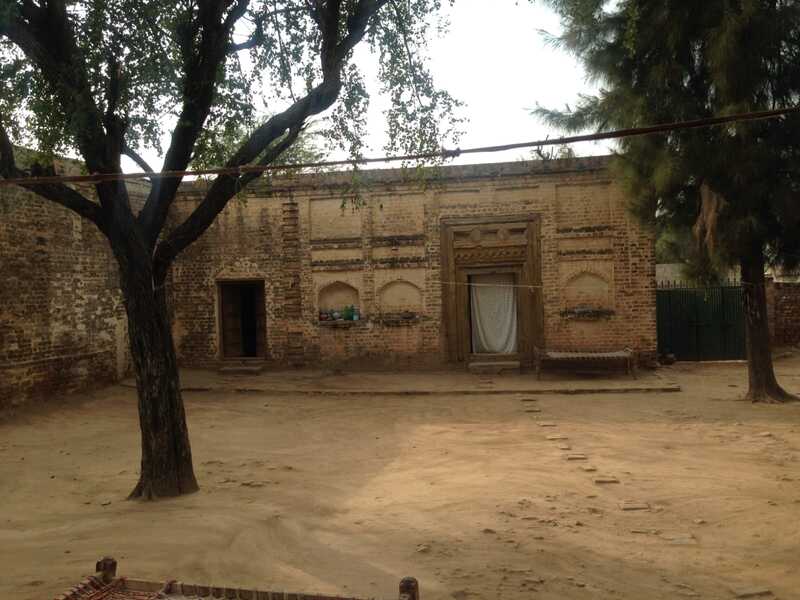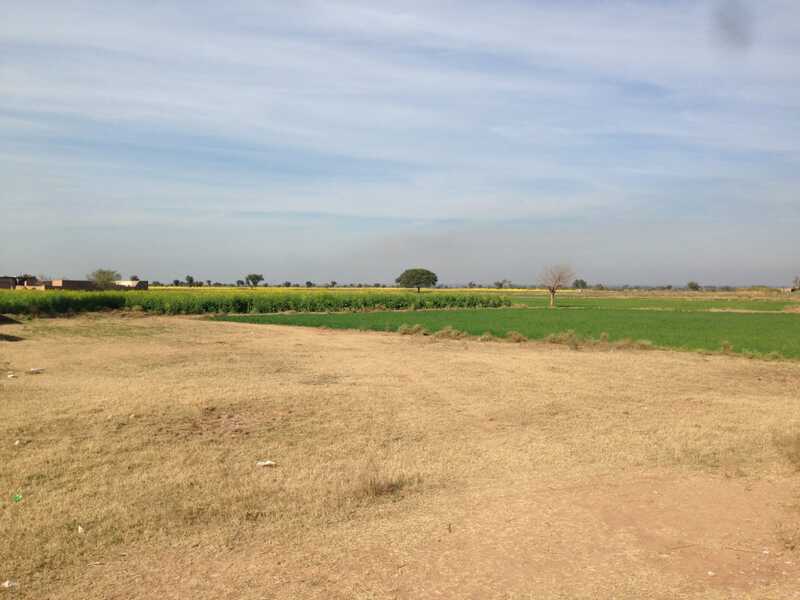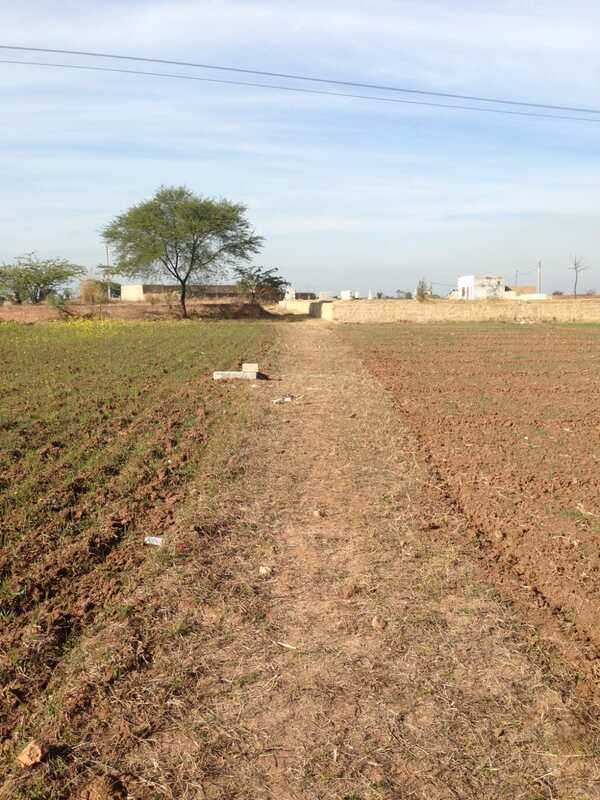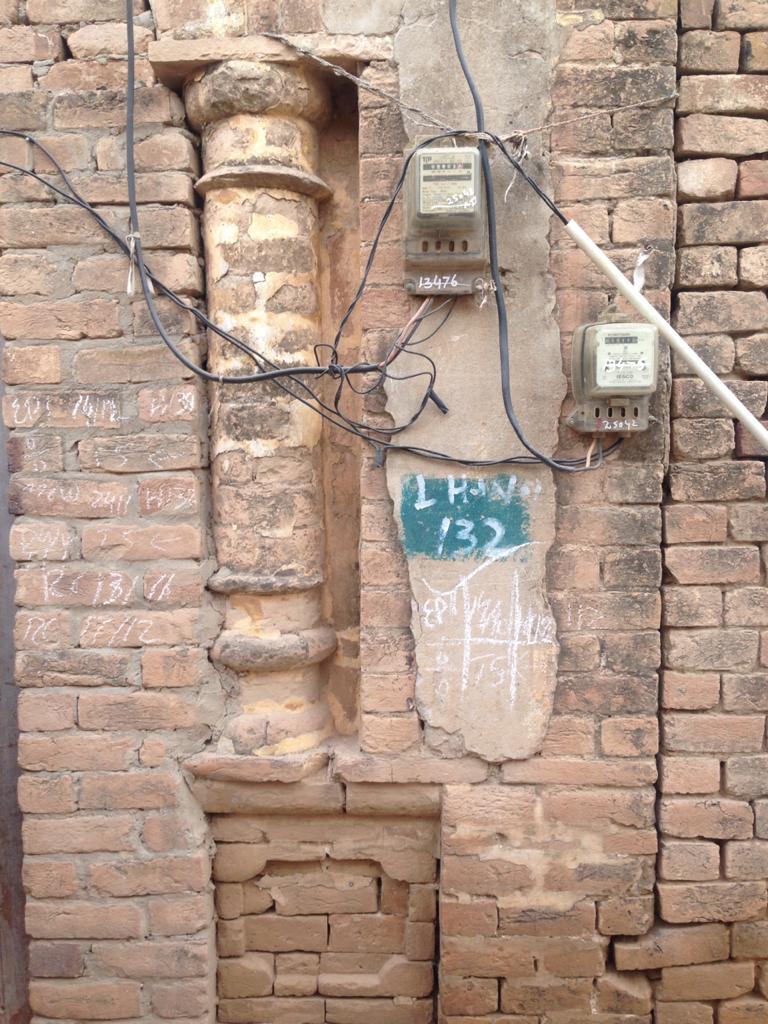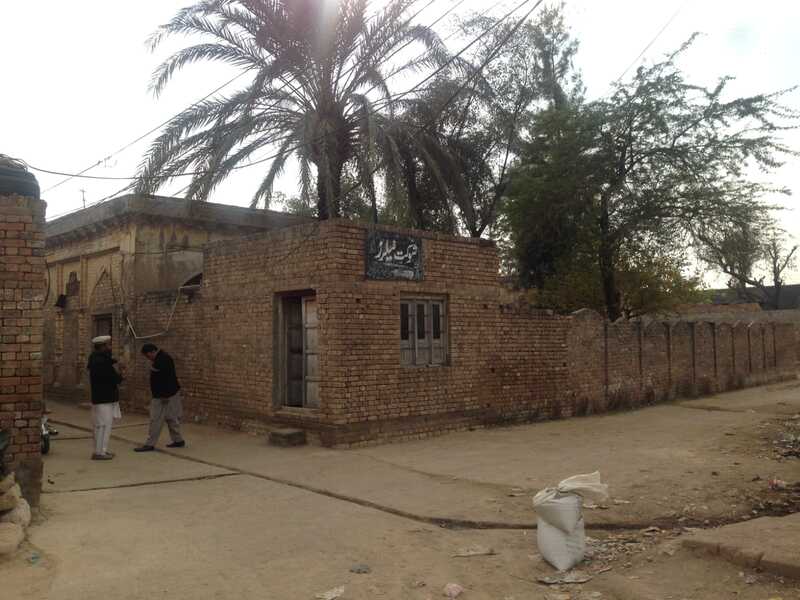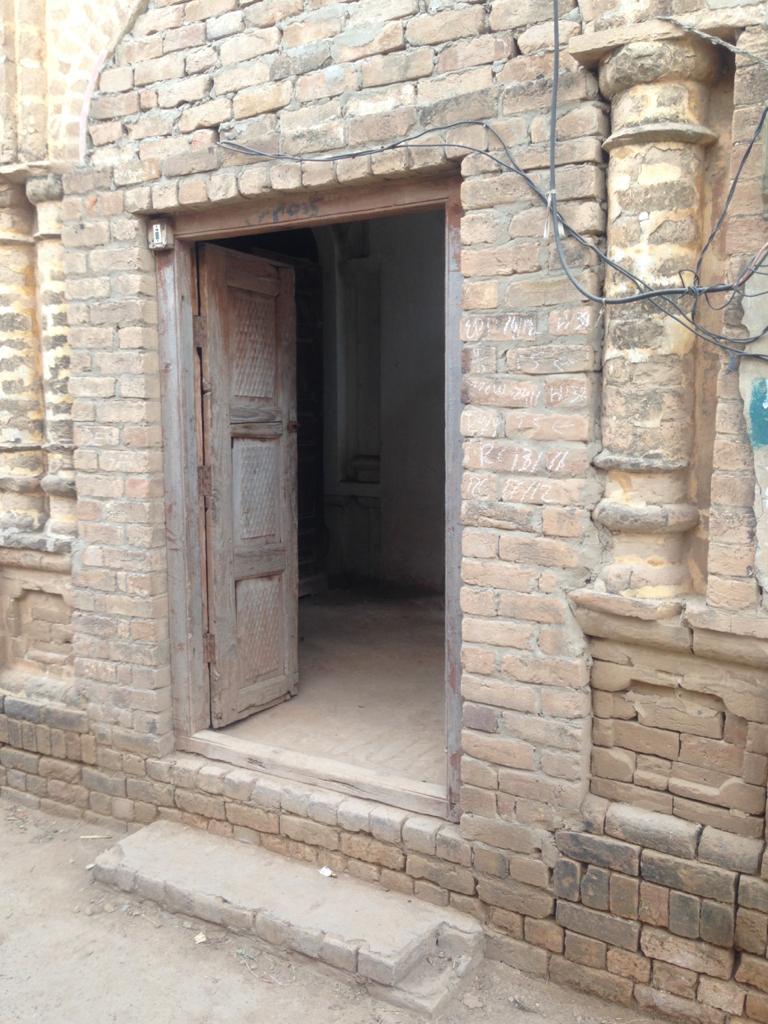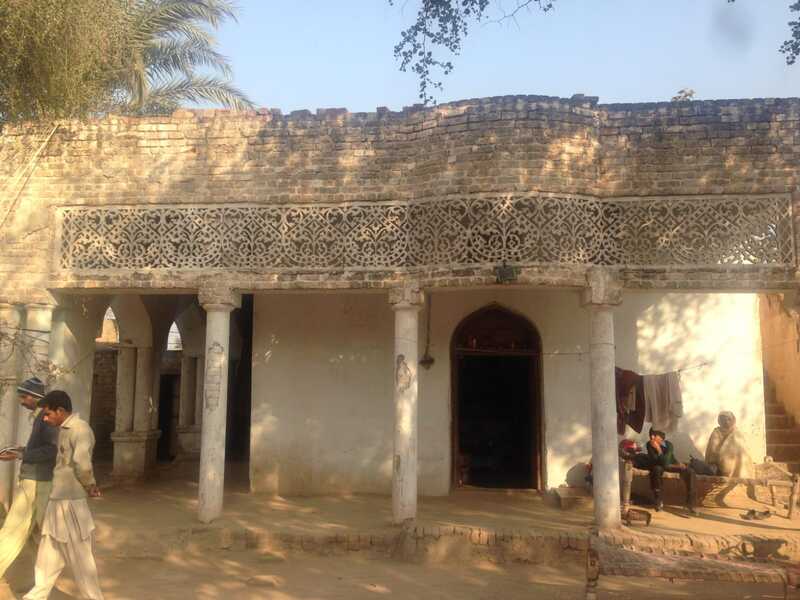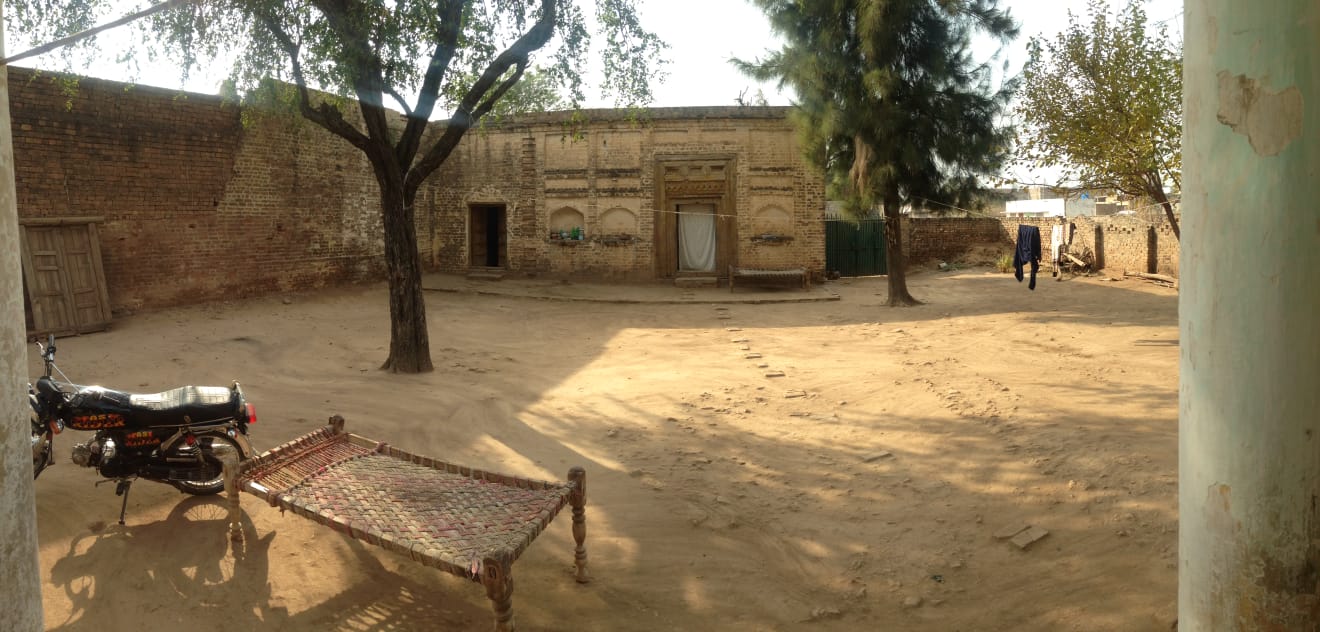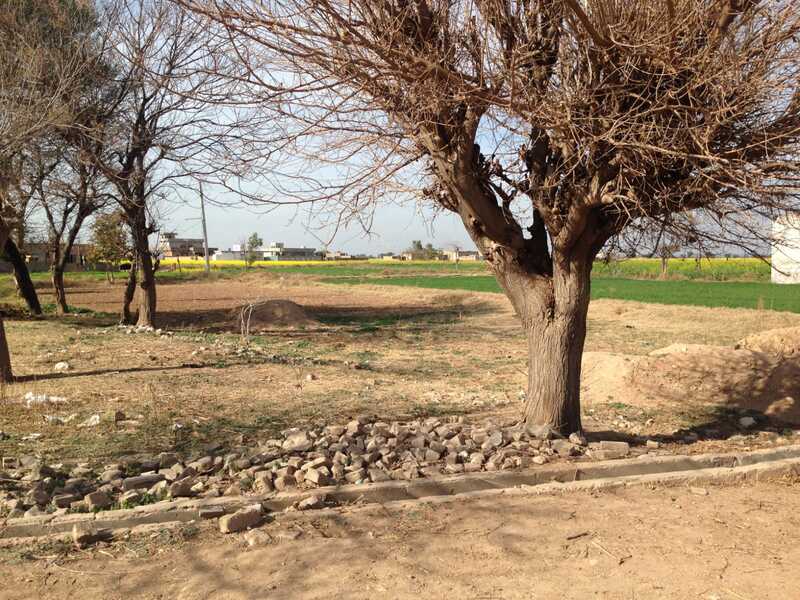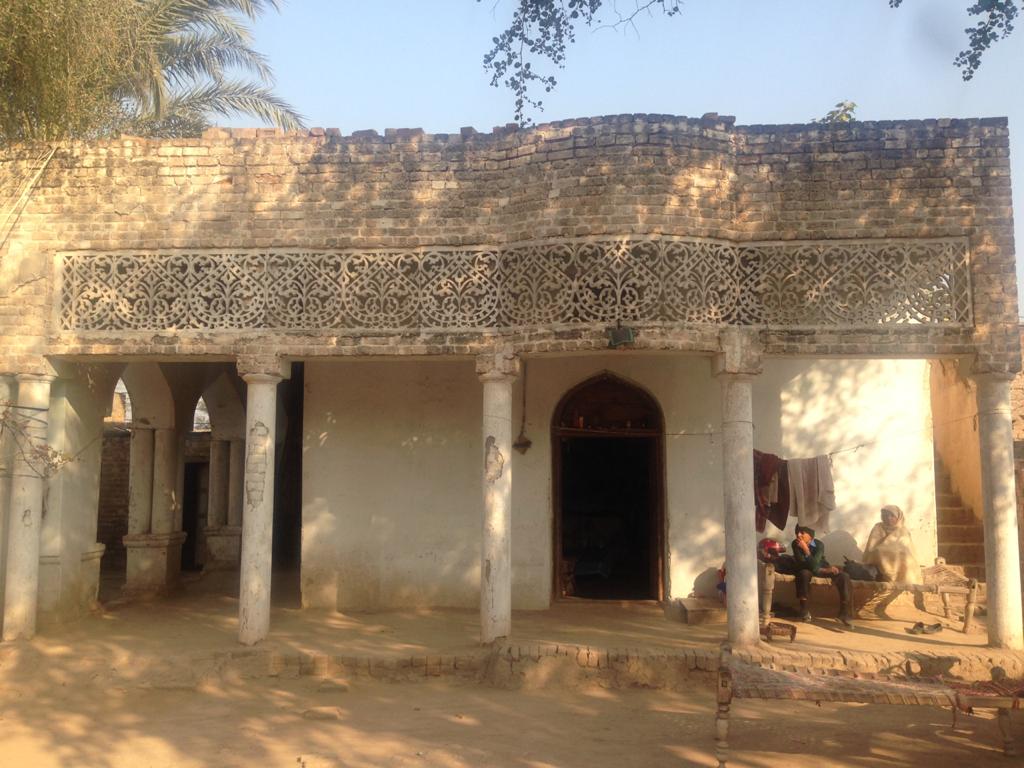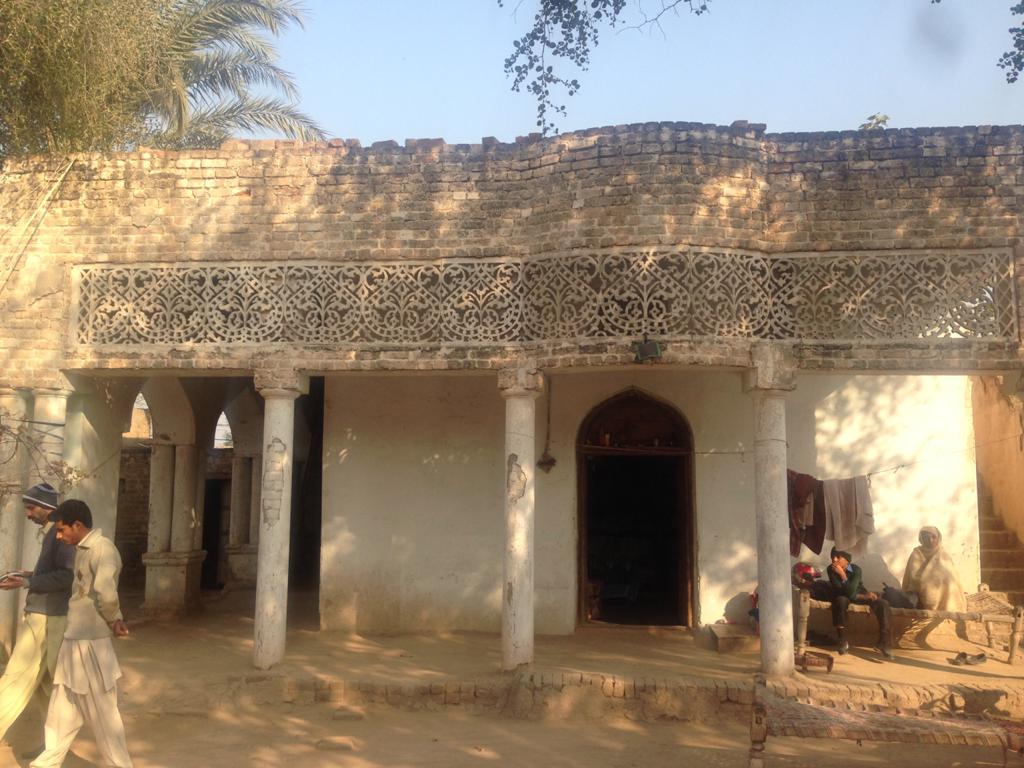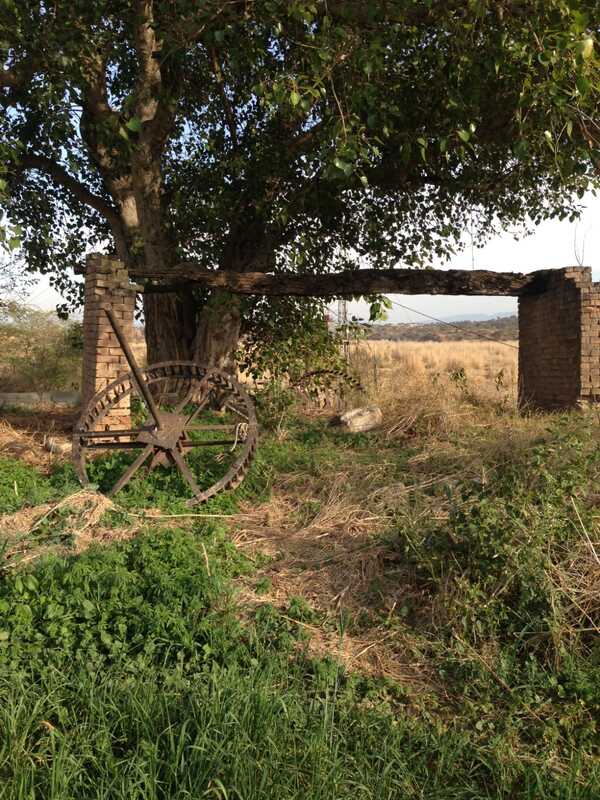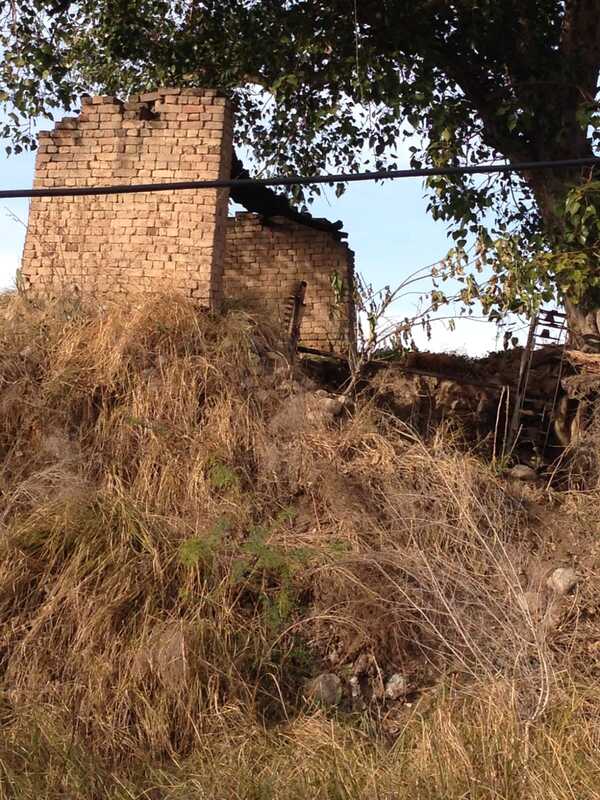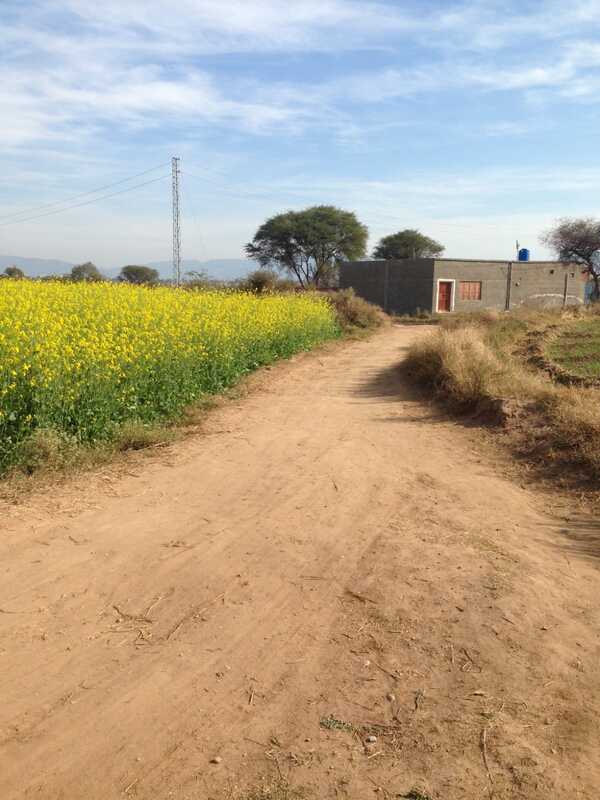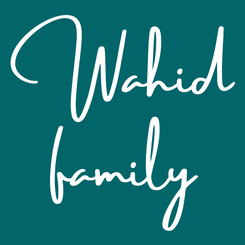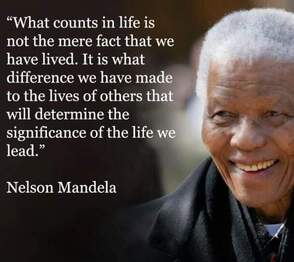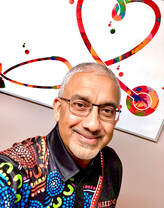The family history - Raboobee | Wahid | Jogee families
The history of the Wahid Family in South Africa.
This site was created to document the history and family tree of the Wahid Family since their arrival to South Africa and of our ancestors.
But to get to the Wahid family we trace back the ancestral roots to the Raboobee family and I am fortunate to be able to record 9 generations of our family dating back to the early 1800's.
Wow, recording this family tree has thought me so much about the relationships we share, some simple, some a bit more complex but it was all good fun and an educational experience, and rekindling family ties.
So here goes of the history based on the information I have sourced at present...
This will be work in progress and be updated as new information comes to hand. So family and friends please feel to share.
Abdullah Gafoor Khan was the father of Shaik Mustan. Sheik Emam was the father of Hyath Bee Khan.
Shaik Mustan (1834-1888) married Hyath Bee Khan (born 1836). Together they had a daughter Rabia Bee Bee who was born in 1855.
The Mustan family arrived in South Africa from Chittoor, Madras on the ship 'Rajastan' on the 21st January 1864, and Rabia Bee Bee was a nine year old at the time.
Then we have Goolam Hoosain (born 1837) was the son of Hyder Bux, and he arrived from Chittoor Madras on the ship 'Tyburnia' on the 20th March 1861.
Later Rabia Bee Bee was married to Goolam Hoosain. The couple were blessed with 3 sons and 1 daughter (no information available) in this marriage. 3 sons:
This site was created to document the history and family tree of the Wahid Family since their arrival to South Africa and of our ancestors.
But to get to the Wahid family we trace back the ancestral roots to the Raboobee family and I am fortunate to be able to record 9 generations of our family dating back to the early 1800's.
Wow, recording this family tree has thought me so much about the relationships we share, some simple, some a bit more complex but it was all good fun and an educational experience, and rekindling family ties.
So here goes of the history based on the information I have sourced at present...
This will be work in progress and be updated as new information comes to hand. So family and friends please feel to share.
Abdullah Gafoor Khan was the father of Shaik Mustan. Sheik Emam was the father of Hyath Bee Khan.
Shaik Mustan (1834-1888) married Hyath Bee Khan (born 1836). Together they had a daughter Rabia Bee Bee who was born in 1855.
The Mustan family arrived in South Africa from Chittoor, Madras on the ship 'Rajastan' on the 21st January 1864, and Rabia Bee Bee was a nine year old at the time.
Then we have Goolam Hoosain (born 1837) was the son of Hyder Bux, and he arrived from Chittoor Madras on the ship 'Tyburnia' on the 20th March 1861.
Later Rabia Bee Bee was married to Goolam Hoosain. The couple were blessed with 3 sons and 1 daughter (no information available) in this marriage. 3 sons:
- Sheik Emam
- Sheik Ansari and
- Sheik Sulaiman.
The Wahid, Raboobee and Jogee families are descendants of Rabia Bee Bee and Goolam Hoosain through their first son Sheik Emam Raboobee and his first wife.
They were blessed with two sons Sheik Abdulla and Sheik Hassan, and two daughters Fathima and Halima.
They were blessed with two sons Sheik Abdulla and Sheik Hassan, and two daughters Fathima and Halima.
- Son Abdulla Raboobee married Dr Mossidah.
- Son Hassan Raboobee married Janet (Zeenat)
- Daughter Fathima Raboobee married Molvi Abdul Wahid.
- Daughter Halima Raboobee married Cassim Jogee.
Molvi Abdul & Fathima Wahid
Fathima Raboobee was married to Molvi Abdul Wahid and they were blessed with 3 sons and 3 daughters.
Daughter Shafeeah passed away as a child.
Daughter Shafeeah passed away as a child.
- Ayoob Wahid married Shereen Jhaveri and later was married to Zulekha
- Sadik married Shahida Banu Khan (Laila)
- Saleemah married Abdul Razack Sultan
- Shakir married Fathima Khan
- Afeefa married Aboobaker Sultan
- Shafeeah (deceased as a child)
DHIDWAL VILLAGE, CHAKWAL.
Abdul Wahid hails from Dhidwal Village in Chakwal District which is about a 90km trip from Islamabad in now Pakistan.
Molvi Abdul Wahid did his Arabic studies at the Madressa Ishahatul Uloom in Chakwal in Pakistan and also he spent several years at Panipat Madressa furthering his Islamic studies.
It is reported that his family were land barons in the Dhidwal Village.
Abdul Wahid served in the British Army as a Cavalry Officer and was posted to British Kenya. It is during this period that he sustained a gunshot injury to his leg and was sent to South Africa for medical treatment.
He received an honourable discharge from the Army, but decided to remain in South Africa.
SOUTH AFRICA.
In South Africa he later married his wife Fathima Emam Raboobee, daughter of Sheik Emam Raboobee.
During his stay in South Africa, he was appointed as an Imam at the Grey Street Mosque. Also was reported to have opened a clothing factory whist in South Africa, the first Indian to open a clothing factory in Durban.
Abdul Wahid hails from Dhidwal Village in Chakwal District which is about a 90km trip from Islamabad in now Pakistan.
Molvi Abdul Wahid did his Arabic studies at the Madressa Ishahatul Uloom in Chakwal in Pakistan and also he spent several years at Panipat Madressa furthering his Islamic studies.
It is reported that his family were land barons in the Dhidwal Village.
Abdul Wahid served in the British Army as a Cavalry Officer and was posted to British Kenya. It is during this period that he sustained a gunshot injury to his leg and was sent to South Africa for medical treatment.
He received an honourable discharge from the Army, but decided to remain in South Africa.
SOUTH AFRICA.
In South Africa he later married his wife Fathima Emam Raboobee, daughter of Sheik Emam Raboobee.
During his stay in South Africa, he was appointed as an Imam at the Grey Street Mosque. Also was reported to have opened a clothing factory whist in South Africa, the first Indian to open a clothing factory in Durban.
BACK TO INDIA.
In 1939 with his wife and 6 children Molvi Abdul Wahid returned to Chakwal, in then India. Molvi was in the process of building a home for his young family after their arrival. His wife Fathima was noted to be unwell and unfortunately within 6 months of the family's arrival she passed away and within a month of her passing, their youngest daughter Shafeeah also passed away, both reported to be due to Cholera.
Molvi Abdul Wahid was invited for a function in Chakwal, where it is reported by daughter Saleema that he took ill and passed away within a few days days, possibly due to food poisoning.
So, sadly both parents and a young sibling passed away, leaving behind his 5 young children stranded in Punjab as orphans.
Molvi Abdul, his wife Fathima and daughter Shafeeah were buried in Dhidwal Village, Pakistan.
In 1939 with his wife and 6 children Molvi Abdul Wahid returned to Chakwal, in then India. Molvi was in the process of building a home for his young family after their arrival. His wife Fathima was noted to be unwell and unfortunately within 6 months of the family's arrival she passed away and within a month of her passing, their youngest daughter Shafeeah also passed away, both reported to be due to Cholera.
Molvi Abdul Wahid was invited for a function in Chakwal, where it is reported by daughter Saleema that he took ill and passed away within a few days days, possibly due to food poisoning.
So, sadly both parents and a young sibling passed away, leaving behind his 5 young children stranded in Punjab as orphans.
Molvi Abdul, his wife Fathima and daughter Shafeeah were buried in Dhidwal Village, Pakistan.
The 5 siblings lived with their paternal grandmother for a short while and due to her poor health, they were taken by an army friend of the Molvi, a Subedar Saab to his home and they were under the care of Subedar Saab's mother.
Two years later, in 1942 Sheik Hassan Raboobee wanted to have his sisters children reunited with the South African family, so he sent over an employee known as Mohammed Kayat to make the necessary arrangements. He moved the 5 kids to Surat to his family where they spent 6 months.
He then made arrangements for the 5 young orphaned children to be brought back to South Africa by ship. It is reported to have been a difficult and treacherous journey for them as it was in the midst the second world war.
Two years later, in 1942 Sheik Hassan Raboobee wanted to have his sisters children reunited with the South African family, so he sent over an employee known as Mohammed Kayat to make the necessary arrangements. He moved the 5 kids to Surat to his family where they spent 6 months.
He then made arrangements for the 5 young orphaned children to be brought back to South Africa by ship. It is reported to have been a difficult and treacherous journey for them as it was in the midst the second world war.
DURBAN, SOUTH AFRICA.
After their arrival back to Durban, the 5 Wahid children (Saleemah, Afeefa, Ayoob, Sadik and Shakir) were reared by their uncle Hassan Raboobee and his family at their Florida Road home. Their only son Shaik Habibullah (Baba) had a very close relationship with the Wahid siblings, a relationship which lasted the rest of their lives and onto the next generation of their families.
Afeefa often told us of Baba returning late evenings from a movie and she would make him his favourite late night desert fresh hot pancakes. She was known to have made the best pancakes even for her own children later and recipe was handed down to her kids later in life !
So Saleemah and Afeefa continued to live with uncle Hassan Raboobee, whilst the 3 lads wanted to be a bit more adventurous and moved back and forth between the Raboobee home in Verulam (known as Tower House), and their aunt Halima and her husband Cassim Jogee in May Street, Durban.
Shakir spent much time with the Halim and Cassim Jogee family and got married from their home.
Ayub and Sadiq spent time with Haroon Raboobee in Greytown.
After their arrival back to Durban, the 5 Wahid children (Saleemah, Afeefa, Ayoob, Sadik and Shakir) were reared by their uncle Hassan Raboobee and his family at their Florida Road home. Their only son Shaik Habibullah (Baba) had a very close relationship with the Wahid siblings, a relationship which lasted the rest of their lives and onto the next generation of their families.
Afeefa often told us of Baba returning late evenings from a movie and she would make him his favourite late night desert fresh hot pancakes. She was known to have made the best pancakes even for her own children later and recipe was handed down to her kids later in life !
So Saleemah and Afeefa continued to live with uncle Hassan Raboobee, whilst the 3 lads wanted to be a bit more adventurous and moved back and forth between the Raboobee home in Verulam (known as Tower House), and their aunt Halima and her husband Cassim Jogee in May Street, Durban.
Shakir spent much time with the Halim and Cassim Jogee family and got married from their home.
Ayub and Sadiq spent time with Haroon Raboobee in Greytown.
SALEEMAH WAHID.
So Saleemah lived with sister Afeefa at Hassan Raboobee's home in Florida Road in Durban, she reports that a young lad proposed to her, but her uncle Sheik Hassan noted the less than polite and a bit of a rough way in his conversation and demeanor of this young man, and did not allow this proposal to progress. (This was the first in 2022 that her son Abdul Hameed and I learnt of this, over 70 years later.
So when she was a 19 year old lass living in Florida Road, Durban, she relates the late Hajee ML Sultan came to visit Sheik Hassan with a proposal for his son Abdul Razack, and noting the honourable family man which Hajee Sultan was reputed to be, Sheik Hassan agreed to give Saleemah's hand in marriage. She reports seeing her husband Abdul Razack for the first time, only after the wedding had taken place.
So Saleemah lived with sister Afeefa at Hassan Raboobee's home in Florida Road in Durban, she reports that a young lad proposed to her, but her uncle Sheik Hassan noted the less than polite and a bit of a rough way in his conversation and demeanor of this young man, and did not allow this proposal to progress. (This was the first in 2022 that her son Abdul Hameed and I learnt of this, over 70 years later.
So when she was a 19 year old lass living in Florida Road, Durban, she relates the late Hajee ML Sultan came to visit Sheik Hassan with a proposal for his son Abdul Razack, and noting the honourable family man which Hajee Sultan was reputed to be, Sheik Hassan agreed to give Saleemah's hand in marriage. She reports seeing her husband Abdul Razack for the first time, only after the wedding had taken place.
Now having lived and grown up at the Raboobee homestead, she also reports that other than pancakes, her cooking skills were very limited.
Now we should also recall that her father in law Hajee ML Sultan, had lost his wife early, when his youngest son Aboobaker was only a 2 year old, and the homestead lacked any female members, as by then the Sultan girls had all been married.
She reports that ML Sultan was very protective over her as would be a father to a daughter, and even though she entertained his many business friends at their home, in Escombe, Natal, he ensured she was never over burdened. He always insisted that his youngest son Aboobaker (17 year old at the time) assisted her with the washing, cleaning up and packing away, after these dinner functions, and Aboobaker became very proficient at this. (The penny just dropped for me where I learnt to be pedantic, organised and thorough in every thing I do to this day).
These anecdotes of Saleema is unlike those of others who reported ML Sultan to be a very strict and authoritarian gentleman. Others who saw his expectations of honesty, integrity, efficiency, punctuality and perfection as crucial personality traits; and felt him to be strict.
She reports that he "really liked her cooking" skills. It was a time when cooking was over a coal stove and using a Primus stove for her.
Some of us older grand children will remember that large dining room with a long dining table towards the left of his home. Whenever she talks about Hajee Sultan it brings a twinkle to her eye noting how well he made sure she was happy and that he liked her cooking. This sense of joy that he liked her cooking and and she had his good wishes and support, that kind of sense of happiness in her voice and outward expression was noted by even my nieces, during their conversation with her about life at the Escombe manor.
Now we should also recall that her father in law Hajee ML Sultan, had lost his wife early, when his youngest son Aboobaker was only a 2 year old, and the homestead lacked any female members, as by then the Sultan girls had all been married.
She reports that ML Sultan was very protective over her as would be a father to a daughter, and even though she entertained his many business friends at their home, in Escombe, Natal, he ensured she was never over burdened. He always insisted that his youngest son Aboobaker (17 year old at the time) assisted her with the washing, cleaning up and packing away, after these dinner functions, and Aboobaker became very proficient at this. (The penny just dropped for me where I learnt to be pedantic, organised and thorough in every thing I do to this day).
These anecdotes of Saleema is unlike those of others who reported ML Sultan to be a very strict and authoritarian gentleman. Others who saw his expectations of honesty, integrity, efficiency, punctuality and perfection as crucial personality traits; and felt him to be strict.
She reports that he "really liked her cooking" skills. It was a time when cooking was over a coal stove and using a Primus stove for her.
Some of us older grand children will remember that large dining room with a long dining table towards the left of his home. Whenever she talks about Hajee Sultan it brings a twinkle to her eye noting how well he made sure she was happy and that he liked her cooking. This sense of joy that he liked her cooking and and she had his good wishes and support, that kind of sense of happiness in her voice and outward expression was noted by even my nieces, during their conversation with her about life at the Escombe manor.
Saleemah and Abdul Razack were married in 1948, and their eldest son Abdul Kader was born in 1949, daughter Ayesha in 1951, and son Abdul Hameed in 1954.
Abdul Hameed was born 3 days before his uncle, the eldest son of Hajee Sultan, also Abdul Hameed passed away, and was
Abdul Razack and his family lived in this home till around 1970, and sold due to the group areas act, requiring them to move.
Abdul Hameed was born 3 days before his uncle, the eldest son of Hajee Sultan, also Abdul Hameed passed away, and was
Abdul Razack and his family lived in this home till around 1970, and sold due to the group areas act, requiring them to move.
AFEEFA WAHID.
So it seems that Saleemah had impressed Hajee Sultan enough, that in a few years, he took a proposal for his youngest son Aboobaker to Sheik Hassan Raboobee for the hand in marriage to Afeefa, the youngest child of Molvi Abdul Wahid. Sheik Hassan accepted and Aboobaker and Afeefa were married on 26th January 1953.
This young couple had less time with Hajee Sultan. Within about 6-7 months of their marriage Hajee ML Sultan passed away.
Saleemah notes that Hajee Sultan had a regular morning routine, and one day she noted that he took longer than usual in the bathroom. She was concerned and reported this to the boys Abdul Razack and Aboobaker, and they went in to check and found that their dad had suffered a stroke.
His GP at the time was Dr. Goolam Rasool Abdul Karrim, who was his grandson-in-law. Hajee Sultan died shortly after on the 6 September 1953.
So Aboobaker and Afeefa had 6 children - 4 daughters and 2 sons:
The home was furnished with solid second hand imbuia ball and claw furniture, which was as solid and they kept it in perfect and meticulous state in every respect.
This home of theirs was a kind of 'revolving door home' for the Wahid and Sultan families where there were constant visitors from all over. Afeefa was an excellent entertainer and also beautiful person who became a confidant for many in the family on both sides, where the young and not so young were happy to discuss their life and share their inner secrets and concerns, knowing that it all stayed safe. I personally know in the 90's of female cousins in the family who will come to have private conversations with her, still feeling that sense of comfort and trust in her.
Both brothers Sadiq and Ayub lived at Afeefa and Aboobaker's home at different times before and after marriage, and Afeefa was the matriarch to the brothers. Like she was with Baba Raboobee she was to her brothers, their mother figure.
Both Ayub's marriages took place from this home in Overport. Ayub was first married to Shereen Jhaveri and lived initially within the main home and later moved into the outbuilding of the residence. When he divorced he then lived in the main home again and the front bedroom of the home he occupied.
His second marriage to Zulekha (Bibi) in 1963 was also from this home. My sister Rashida recalls that our dad Aboobaker came home from work in the butcher, on the day of Ayub and Zulekha's wedding, she recalls him busy trimming the hedges and gardens to get it looking perfect, and when everyone tried rushing him along, but he said it has to look perfect for the "new bride coming home".
Sadik married Shahida Banu (Laila) and they also lived in the outbuilding of Afeefa and Aboobaker's home in Overport for some years.
Our home had a never ending stream of visitors from far and wide, we just referred to visitors more from where they lived often, Hope Street, West Road, Wyebank, Red Hill, Maritzburg and Escombe. The visitors also included extended families, who always enjoyed a good meal and a cheerful home.
For me personally it was the place I learnt so many life skills, from mums home economics, cleaning, keeping a perfect organised home; to Dad's washing a car perfectly, helping with motor car repairs out the back under the huge tree, to driving the car in the yard as a 9-10 year old kid, and all the around the house maintenance. My eye for detail and perfection comes from both my parents.
It was a place were us kids ran around the streets, played with neighbours kids and lots of cousins and just had lots of fun.
This was our home till 1972, when it was sold and the Aboobaker decided to relocate to Umhlatuzana to be closer to his butcher business. So they spent around 15 - 18 years at this home. Incidentally the sale of the home was concluded by Aboobaker's brother in law Osman Amod, who was known to dabble in real estate.
My memories as a young lad of the butcher. My Dad took me to the butcher every holiday, and every weekend on a Saturday where I started as the delivery boy. So initially for a brief period on a Friday night, cousin AK would pick me up from our home in Overport, and I would go to Escombe and then on the Saturday morning, I would go with Uncle Razack to the shop.
He would drive to do the deliveries and I would be the runner in and out of the customers homes. Very soon this picking up on the Friday night changed to me going with my Dad at about 3am on the Saturday morning to the Shop, I had my spot to sleep in and I would get up at 7:00 to start the day. This butcher was were I learnt all my life business skills - communication, customer service, stock control, stock rotation, honesty and integrity when it came to weighing the meat (he taught us it could be extra on the scale for the customer but never less), money management and so much more; these are the skills which still hold me in good stead today. I worked and managed the butcher during my studies up until my 4th year at medical school.
In 1972 after the sale of the home in Overport, Afeefa and Aboobaker moved to the outbuilding at the back of the butcher business in Umhlatuzana.
It was during their stay at the back outbuilding that they even shared their small home with the Abdul Razack family for a short while, who by then had to move out of Escombe ~ 1973. (The AR family then moved off to 30th Avenue in Umhlatuzana)
Around 1977 the flats above the main butchery building were built and it was then they moved upstairs towards the end of 1977.
In Umhlatuzana all of Afeefa and Aboobaker's children got married from, and Imraan the youngest lived in the home in till about 2016 ~ 5 years ago. Imraan still runs the businesses and has his Insurance consultancy offices on the property.
It was also where some other family members got married from as well. I recall Essop Amod got married in a marquee on the vacant land next door.
Aboobaker Sultan passed away at age 56 in 1987, and Afeefa in 1995 at age 60. Aboobaker Sultan (1931-1987) and Afeefa Wahid (1935-1995).
So it seems that Saleemah had impressed Hajee Sultan enough, that in a few years, he took a proposal for his youngest son Aboobaker to Sheik Hassan Raboobee for the hand in marriage to Afeefa, the youngest child of Molvi Abdul Wahid. Sheik Hassan accepted and Aboobaker and Afeefa were married on 26th January 1953.
This young couple had less time with Hajee Sultan. Within about 6-7 months of their marriage Hajee ML Sultan passed away.
Saleemah notes that Hajee Sultan had a regular morning routine, and one day she noted that he took longer than usual in the bathroom. She was concerned and reported this to the boys Abdul Razack and Aboobaker, and they went in to check and found that their dad had suffered a stroke.
His GP at the time was Dr. Goolam Rasool Abdul Karrim, who was his grandson-in-law. Hajee Sultan died shortly after on the 6 September 1953.
So Aboobaker and Afeefa had 6 children - 4 daughters and 2 sons:
- Sayeeda 1953
- Rashida 1955
- Saajida 1958
- Mohammed Iqbal 1962
- Shehnaaz 1963
- Mohammed Imraan 1970
The home was furnished with solid second hand imbuia ball and claw furniture, which was as solid and they kept it in perfect and meticulous state in every respect.
This home of theirs was a kind of 'revolving door home' for the Wahid and Sultan families where there were constant visitors from all over. Afeefa was an excellent entertainer and also beautiful person who became a confidant for many in the family on both sides, where the young and not so young were happy to discuss their life and share their inner secrets and concerns, knowing that it all stayed safe. I personally know in the 90's of female cousins in the family who will come to have private conversations with her, still feeling that sense of comfort and trust in her.
Both brothers Sadiq and Ayub lived at Afeefa and Aboobaker's home at different times before and after marriage, and Afeefa was the matriarch to the brothers. Like she was with Baba Raboobee she was to her brothers, their mother figure.
Both Ayub's marriages took place from this home in Overport. Ayub was first married to Shereen Jhaveri and lived initially within the main home and later moved into the outbuilding of the residence. When he divorced he then lived in the main home again and the front bedroom of the home he occupied.
His second marriage to Zulekha (Bibi) in 1963 was also from this home. My sister Rashida recalls that our dad Aboobaker came home from work in the butcher, on the day of Ayub and Zulekha's wedding, she recalls him busy trimming the hedges and gardens to get it looking perfect, and when everyone tried rushing him along, but he said it has to look perfect for the "new bride coming home".
Sadik married Shahida Banu (Laila) and they also lived in the outbuilding of Afeefa and Aboobaker's home in Overport for some years.
Our home had a never ending stream of visitors from far and wide, we just referred to visitors more from where they lived often, Hope Street, West Road, Wyebank, Red Hill, Maritzburg and Escombe. The visitors also included extended families, who always enjoyed a good meal and a cheerful home.
For me personally it was the place I learnt so many life skills, from mums home economics, cleaning, keeping a perfect organised home; to Dad's washing a car perfectly, helping with motor car repairs out the back under the huge tree, to driving the car in the yard as a 9-10 year old kid, and all the around the house maintenance. My eye for detail and perfection comes from both my parents.
It was a place were us kids ran around the streets, played with neighbours kids and lots of cousins and just had lots of fun.
This was our home till 1972, when it was sold and the Aboobaker decided to relocate to Umhlatuzana to be closer to his butcher business. So they spent around 15 - 18 years at this home. Incidentally the sale of the home was concluded by Aboobaker's brother in law Osman Amod, who was known to dabble in real estate.
My memories as a young lad of the butcher. My Dad took me to the butcher every holiday, and every weekend on a Saturday where I started as the delivery boy. So initially for a brief period on a Friday night, cousin AK would pick me up from our home in Overport, and I would go to Escombe and then on the Saturday morning, I would go with Uncle Razack to the shop.
He would drive to do the deliveries and I would be the runner in and out of the customers homes. Very soon this picking up on the Friday night changed to me going with my Dad at about 3am on the Saturday morning to the Shop, I had my spot to sleep in and I would get up at 7:00 to start the day. This butcher was were I learnt all my life business skills - communication, customer service, stock control, stock rotation, honesty and integrity when it came to weighing the meat (he taught us it could be extra on the scale for the customer but never less), money management and so much more; these are the skills which still hold me in good stead today. I worked and managed the butcher during my studies up until my 4th year at medical school.
In 1972 after the sale of the home in Overport, Afeefa and Aboobaker moved to the outbuilding at the back of the butcher business in Umhlatuzana.
It was during their stay at the back outbuilding that they even shared their small home with the Abdul Razack family for a short while, who by then had to move out of Escombe ~ 1973. (The AR family then moved off to 30th Avenue in Umhlatuzana)
Around 1977 the flats above the main butchery building were built and it was then they moved upstairs towards the end of 1977.
In Umhlatuzana all of Afeefa and Aboobaker's children got married from, and Imraan the youngest lived in the home in till about 2016 ~ 5 years ago. Imraan still runs the businesses and has his Insurance consultancy offices on the property.
It was also where some other family members got married from as well. I recall Essop Amod got married in a marquee on the vacant land next door.
Aboobaker Sultan passed away at age 56 in 1987, and Afeefa in 1995 at age 60. Aboobaker Sultan (1931-1987) and Afeefa Wahid (1935-1995).
AYUB WAHID
Ayub left the Florida Road Raboobee home and decided to abscond to Pakistan for a while.
He then returned to South Africa met Seereen Jhaveri and went off to London where he married Seereen.
Their eldest Mahammed Farhaad was born in London on the 18th March 1951. Farhaad moved back to Durban and lived with his Nani in Hoosen's Building. Farhaad grew up in Durban and later married Yasmin Tar Mohammed in 1976 and they had 4 children and they emigrated to Los Angeles where Farhaad passed away in 2007. Farhaad & Yasmin have 4 children Owais, Javed, Altaf and Zaheera.
Their second son Qayyam was born in Durban, and is in Johannesburg.
On his return to Durban Ayub lived with sister Afeefa and Aboobaker Sultan, and lived initially within the main home and later moved into the outbuilding of the residence.
When he divorced he then lived in the main home again and the front bedroom of the home he occupied, whist living there.
His second marriage to Zulekha (Bibi) in 1963 was also from Afeefa and Aboobaker's home. My sister Rashida recalls that our dad Aboobaker came home from work in the butcher, on the day of Ayub and Zulekha's wedding, she recalls him busy trimming the hedges and gardens to get it looking perfect, and when everyone tried rushing him along, he said it has to look perfect for the "new bride coming home".
Ayub and Zulekha have 3 children - Kursheeda, Mumtaz and Liaqat, lived in Carlisle Street in Durban for many years and then moved to Johannesburg in their later years. Ayub passed away a few years ago in Johannesburg.
Ayub left the Florida Road Raboobee home and decided to abscond to Pakistan for a while.
He then returned to South Africa met Seereen Jhaveri and went off to London where he married Seereen.
Their eldest Mahammed Farhaad was born in London on the 18th March 1951. Farhaad moved back to Durban and lived with his Nani in Hoosen's Building. Farhaad grew up in Durban and later married Yasmin Tar Mohammed in 1976 and they had 4 children and they emigrated to Los Angeles where Farhaad passed away in 2007. Farhaad & Yasmin have 4 children Owais, Javed, Altaf and Zaheera.
Their second son Qayyam was born in Durban, and is in Johannesburg.
On his return to Durban Ayub lived with sister Afeefa and Aboobaker Sultan, and lived initially within the main home and later moved into the outbuilding of the residence.
When he divorced he then lived in the main home again and the front bedroom of the home he occupied, whist living there.
His second marriage to Zulekha (Bibi) in 1963 was also from Afeefa and Aboobaker's home. My sister Rashida recalls that our dad Aboobaker came home from work in the butcher, on the day of Ayub and Zulekha's wedding, she recalls him busy trimming the hedges and gardens to get it looking perfect, and when everyone tried rushing him along, he said it has to look perfect for the "new bride coming home".
Ayub and Zulekha have 3 children - Kursheeda, Mumtaz and Liaqat, lived in Carlisle Street in Durban for many years and then moved to Johannesburg in their later years. Ayub passed away a few years ago in Johannesburg.
SADIK WAHID
Sadik married Shahida Banu (Laila), and they had 5 children. They also lived in the outbuilding of Afeefa and Aboobaker Sultan's home in Overport for some years. They then moved to 40 flats in West Road, Overport for most of their lives, then to Clare Estate.
Sadik married Shahida Banu (Laila), and they had 5 children. They also lived in the outbuilding of Afeefa and Aboobaker Sultan's home in Overport for some years. They then moved to 40 flats in West Road, Overport for most of their lives, then to Clare Estate.
- Quassir
- Ahsif
- Shafia
- Nassar
- Zaffar
SHAKIR WAHID
Shakir spent a while with Aunty Halima and Cassim Jogee and got married from here. Shakir married Fathima and they had 6 children.
Shakir spent a while with Aunty Halima and Cassim Jogee and got married from here. Shakir married Fathima and they had 6 children.
- Bilkish
- Mohammed Musaddiq
- Munadia
- Nafeesa
- Muhammad Arshad (d.06/09/2021)
- Mohammud Ebrahim
TRACING ANCESTRAL ROOTS.
The eldest son of the Molvi Abdul Wahid, Ayub together with grandsons Zaffar (Sadik), Liaqat (Ayub) and Muhammad Arshad (Shakir) visited his village in 2008 in Pakistan to get to know more about their ancestry . They were able to visit the graves of Abdul Wahid and his wife Fathima, and catch up with family and get a first hand insight of the family properties he owned.
The eldest son of the Molvi Abdul Wahid, Ayub together with grandsons Zaffar (Sadik), Liaqat (Ayub) and Muhammad Arshad (Shakir) visited his village in 2008 in Pakistan to get to know more about their ancestry . They were able to visit the graves of Abdul Wahid and his wife Fathima, and catch up with family and get a first hand insight of the family properties he owned.
The village home of Molvi Abdul Wahid. Abdul Wahid hails from Dhidwal Village in Chakwal District which is about a 96km trip south of Islamabad in now Pakistan.
Photos of the village taken in 2008.
Photos of the village taken in 2008.
The Raboobee story
Abdullah Gafoor Khan was the father of Shaik Mustan. Sheik Emam was the father of Hyath Bee Khan.
Shaik Mustan (1834-1888) married Hyath Bee Khan (born 1836). Together they had a daughter Rabia Bee Bee who was born in 1855.
The Mustan family arrived in South Africa from Chittoor, Madras on the ship 'Rajastan' on the 21st January 1864, and Rabia Bee Bee was a nine year old at the time.
Then we have Goolam Hoosain (born 1837) was the son of Hyder Bux, and he arrived from Chittoor Madras on the ship 'Tyburnia' on the 20th March 1861.
Approximately 152,184 indentured Indians arrived from India to South Africa, under the scheme of indenture making a total of 384 trips. The first ship the Truro arrived on 16 November 1860 and the last ship, the Umlazi arrived on 11 July 1911, marking the end of the notorious system of indenture. The ports of Madras and Calcutta served as the points of embarkation.
Later Rabia Bee Bee was married to Goolam Hoosain. The couple were blessed with 3 sons and 1 daughter in this marriage. 3 sons:
Rabia Bee Bee was known to be an entrepreneur and successful business woman managing her own business.
Later in her active business life she became known as 'Raboobee' which subsequently became the family surname, and so we have the birth of the Raboobee Family name.
Rabia Bee Bee passed away on 16 December 1916.
Shaik Mustan (1834-1888) married Hyath Bee Khan (born 1836). Together they had a daughter Rabia Bee Bee who was born in 1855.
The Mustan family arrived in South Africa from Chittoor, Madras on the ship 'Rajastan' on the 21st January 1864, and Rabia Bee Bee was a nine year old at the time.
Then we have Goolam Hoosain (born 1837) was the son of Hyder Bux, and he arrived from Chittoor Madras on the ship 'Tyburnia' on the 20th March 1861.
Approximately 152,184 indentured Indians arrived from India to South Africa, under the scheme of indenture making a total of 384 trips. The first ship the Truro arrived on 16 November 1860 and the last ship, the Umlazi arrived on 11 July 1911, marking the end of the notorious system of indenture. The ports of Madras and Calcutta served as the points of embarkation.
Later Rabia Bee Bee was married to Goolam Hoosain. The couple were blessed with 3 sons and 1 daughter in this marriage. 3 sons:
- Sheik Emam
- Sheik Ansari and
- Sheik Sulaiman.
Rabia Bee Bee was known to be an entrepreneur and successful business woman managing her own business.
Later in her active business life she became known as 'Raboobee' which subsequently became the family surname, and so we have the birth of the Raboobee Family name.
Rabia Bee Bee passed away on 16 December 1916.
INSIDE INDIAN INDENTURE A SOUTH AFRICAN STORY, 1860–1914 - Ashwin Desai.
And then there was ‘Raboobee, Durban Indian Mahomedan Woman’, as her death certificate stated.
Nine-year-old Rabos Bee (2397), as her name was recorded in the Immigrants Register, arrived in Natal from Madras on the Rajasthana in January 1864 with her parents, Sheik Mustan (2395) and Hyath Bee (2396), and brother Sheik Ryman (2398).
They were assigned to Noon’s Sugar Estate in Isipingo where their lives would have intersected with that of Sirdar Ramasamy.
Sheik Mustan (1834–1888) died in a railway accident and little is known of Hyath Bee (b. 1836) or Sheik Ryman.
Raboobee married Goolam Hoosen in Inanda in April 1867 when she was about 13.
They returned to India in March 1868 to perform a Muslim marriage ceremony, then went to Mauritius and returned to Natal in the early 1870s.
Raboobee joined the railways as a clerk, earning a relatively good salary of £2.5s per month.
She bought a property in Victoria Street in Durban in 1882 with her savings, opened a business in Victoria Street around 1885, another in Field Street, and bought a second property in Alice Street.
The stores sold groceries, crockery and baskets. Raboobee was joined in the business by her sons, Emam (1877–1933), Suleman (1882–1922) and Ansari (1883–1927), while her husband Goolam continued to hold his job at the railways.
Raboobee sold her store in 1896 and had opened three butcheries by 1900.
She became one of the wealthiest Indian businesswomen in Durban.
She was one of only two female fee-paying members of the Natal Indian Congress when she joined in 1895, and went on a pilgrimage to Makkah in 1902.
At the time of her death on 16 December 1916, her business and properties were worth an estimated £10 000.
And then there was ‘Raboobee, Durban Indian Mahomedan Woman’, as her death certificate stated.
Nine-year-old Rabos Bee (2397), as her name was recorded in the Immigrants Register, arrived in Natal from Madras on the Rajasthana in January 1864 with her parents, Sheik Mustan (2395) and Hyath Bee (2396), and brother Sheik Ryman (2398).
They were assigned to Noon’s Sugar Estate in Isipingo where their lives would have intersected with that of Sirdar Ramasamy.
Sheik Mustan (1834–1888) died in a railway accident and little is known of Hyath Bee (b. 1836) or Sheik Ryman.
Raboobee married Goolam Hoosen in Inanda in April 1867 when she was about 13.
They returned to India in March 1868 to perform a Muslim marriage ceremony, then went to Mauritius and returned to Natal in the early 1870s.
Raboobee joined the railways as a clerk, earning a relatively good salary of £2.5s per month.
She bought a property in Victoria Street in Durban in 1882 with her savings, opened a business in Victoria Street around 1885, another in Field Street, and bought a second property in Alice Street.
The stores sold groceries, crockery and baskets. Raboobee was joined in the business by her sons, Emam (1877–1933), Suleman (1882–1922) and Ansari (1883–1927), while her husband Goolam continued to hold his job at the railways.
Raboobee sold her store in 1896 and had opened three butcheries by 1900.
She became one of the wealthiest Indian businesswomen in Durban.
She was one of only two female fee-paying members of the Natal Indian Congress when she joined in 1895, and went on a pilgrimage to Makkah in 1902.
At the time of her death on 16 December 1916, her business and properties were worth an estimated £10 000.
